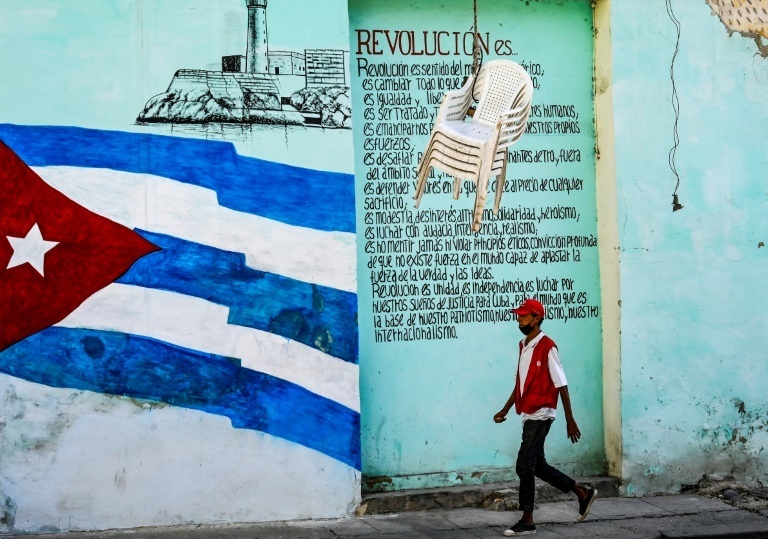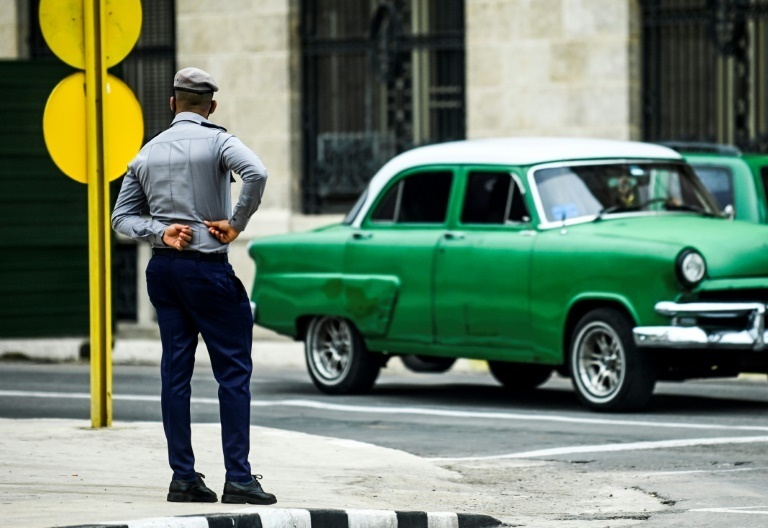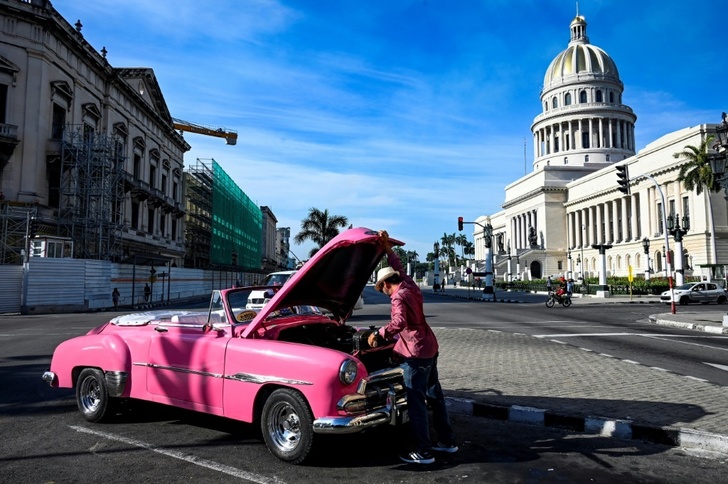Havana's streets were calm Monday on the one-year anniversary of unprecedented anti-government demonstrations, with Cubans denouncing a preemptive security clampdown to avoid a repeat.
Amid fresh accusations of human rights abuses and calls from the United States for the Cuban government to "respect" dissident voices, President Miguel Diaz-Canel said he was convinced the country would emerge from what he described as a "complex situation."
There had been calls for new protests on the anniversary, but more than a dozen dissidents, artists and independent journalists said on Twitter they had received warnings from the police not to leave their homes, from where some reported patrols outside.
They also included the parents of protesters in jail.
"I am under siege," tweeted Yurka Rodriguez, the mother of 25-year-old Yunaikis Linares, one of hundreds placed behind bars by the communist regime.
Rodriguez used the hashtag #SOSCuba.
"No one will go out on the street," student Carlos Rafael Dominguez, 18, told AFP.
"There is no bringing it (the government) down," he said resignedly.

Mass protests broke out across Cuba on July 11 and 12 last year, with demonstrators clamoring for food and freedoms amid the island's worst economic crisis in 30 years, and shortages of fuel, medicines and food.
A crackdown by the security forces left one dead, dozens injured and 1,300 people detained, according to rights observers.
Hundreds, including minors, have since been given jail sentences for such crimes as "public disorder," "contempt" or "sedition."
- 'Prison or exile' -
In a report published on the one-year anniversary of the protests, Human Rights Watch detailed "systematic human rights violations" committed by the government to quash further dissent.
The report listed claims of "arbitrary detention, abuse-ridden prosecutions, beatings and other cases of ill-treatment that in some cases constitute torture."
"A year ago today, thousands of Cubans protested, demanding rights and freedoms, but the government gave many of them only two options: prison or exile," said Juan Pappier, senior Americas researcher at HRW.
Diaz-Canel, who has described the protests as "a vandalistic coup," tweeted Monday that "if anything is to be commemorated this 11th of July, it is the victory of the Cuban people, the Cuban revolution."

Citing a backdrop of "constant economic, political and ideological siege," the president said he was "convinced that we will also emerge from this complex situation."
Cuba accuses the United States of fomenting last year's protests.
In a statement Monday, US Secretary of State Antony Blinken said Washington recognized the "determination and courage" of the Cuban people "as they continue to fight for respect for human rights."
The HRW report documented 155 cases of abuse as part of the "repression against July 2021 protesters."
This included detention of people protesting peacefully or on their way to join marches, and detainees held incommunicado sometimes for months on end without access to relatives or a lawyer.
It also reported unsanitary prison cells, and little or no access to food, medicines, clean water or Covid-19 masks.
"Many (detainees) said they were subject to abusive and repeat interrogations... Some were beaten, forced to squat naked, or subjected to ill-treatment, including sleep deprivation and other abuses that in some cases amount to torture," said the report.
Orestes Sandoval, an 80-year-old queuing to buy cigarettes in the Cuban capital, told AFP a new round of protests was unlikely.
"With everything that has happened, I don't believe anyone would dare to do such a thing."
rd-lp/mlr/to
© Agence France-Presse
Your content is great. However, if any of the content contained herein violates any rights of yours, including those of copyright, please contact us immediately by e-mail at media[@]kissrpr.com.
Source: Story.KISSPR.com

